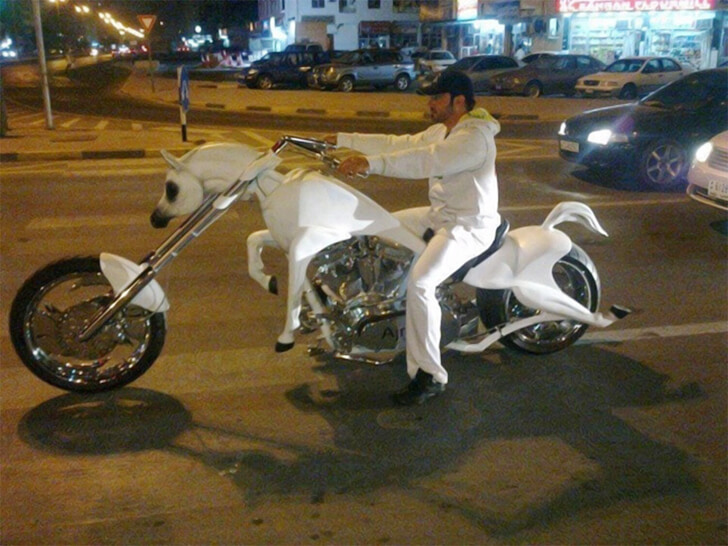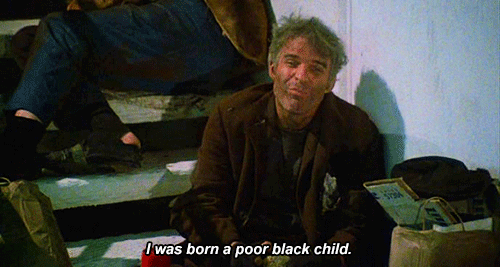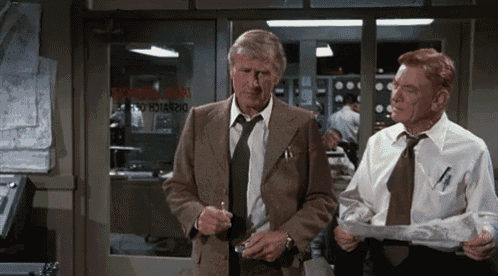-
Posts
1,061 -
Joined
-
Last visited
-
Days Won
1
Content Type
Profiles
Forums
Blogs
Events
Gallery
Store
Posts posted by Junkballer
-
-
Trojan
Miss you Lou!
-
-
-
2 hours ago, UBstrange said:
The reason the Angels lost, you might think, was because Mike Trout struck out to end the game. On the surface, this appears to be true. Looking deeper, the problem was Jose Suarez's lack of incentive. He walked the leadoff batter in the 6th inning and they scored on a HR. Even with Trout striking out and Suarez giving up the HR, had he not walked the leadoff batter before the HR, we would have gone to the bottom of the 9th in a 4-4 game instead of the game ending, 5-4.
Imagine if you could fine any Angels pitcher $100,000 every time he walked a leadoff batter. If you're about to lose a bunch of money, that's a very strong motivator. You might think that they already have an incentive, which is to stay on the team and not get cut. True, that is some basic everyday incentive, but it's not enough to prevent leadoff walks. You have to attack their wallet. Enter the player's association. And now you see another problem with why we can't fix certain issues: The player's association prohibiting it.
Ron Washington should tell every pitcher on the staff that for every leadoff walk that they give up (only the walks to start an inning), they should donate $100,000 to an Angels charity as a personal punishment, not as a fine. The economist in me says that would work almost instantly because the incentive is too strong not to do it. You'd see more leadoff HRs and other hits, but you'd rarely see a leadoff walk.
Question: Would you rather see more leadoff HRs and hits if it meant there was almost never a leadoff walk?The underlying point that leadoff walks are especially damaging is correct, and you did phrase it as a thought experiment. It's not anywhere near a plausible scenario though, being that the players union would nip that in the bud immediately. Perhaps if you proposed an incentive rather that a penalty it might gain more engagement in the "thought experiment".
-
Relative to Angel Hernandez and CB Bucknor, he's alright.
-
1 minute ago, Chuck said:
Been out today with a colonoscopy today but I’m happy to report that everything came back good. I’m clean and don’t have to do another one for another 10 years.

So far I can’t tell the difference between the whole colonoscopy experience today and the Angels play this afternoon.
The similarities are quite telling.
Shitty pitching & defense & the offense has been ass.
There's a clean peanut joke in this post somewhere, but, like the Angels, I just can't put it all together.
-
-
When he was drafted there was talk about Adell's "makeup and maturity". In hindsight, it seems like excitement over his potential, which was and is undisputable, projected those attributes on him. Wash's comments are fairly telling. Hoping for the team's sake that he puts it all together and earns large increases through his arb years.
-
1 hour ago, SlappyUtilityMIF said:
Mid tier is fine! Back end skus...
Yes. They have the potential to have 2,3,3,3,4 but 3,3,4,4,5 is more realistic.
-
1 hour ago, Angelsjunky said:
I'm checking out that article right now, and the first thing that stands out is that Gerrit Cole is the only pitcher that was voted a unanimous ace - that is, by all 20 participants. So if there is only one "true ace" in MLB right now, going by their definition, then that means 29 other teams haven't drafted and developed a guy who is currently a true ace. Of course there are a bunch of guys that would have been unanimous at some point over the last ten years--Kershaw, Scherzer, Verlander, DeGrom, Sale, and others come to mind--but in 2024, Gerrit is the only guy to make the grade. Which is weird.
Back up for a moment. If you're over 35ish, you remember a time when top pitchers regularly pitched 250 innings. Justin Verlander is the only active pitcher to pitch 250 IP, which he did last back in 2011 with 251 IP. Roy Halladay did it a year before. Meaning, from 2010-23 there have been two pitcher seasons with 250 IP. In the decade before, 2000-09, there were 7; in 1990-99, 33; in 1980-89, 109; in the 70s, 255.
Or to put that another way, over the last three seasons, there have been, on average, 5.67 seasons of 200+ IP; from 2010-19, it was 27.1 - that's more than four times as many. Going back further, and it is even more extreme, especially accounting for fewer teams.
It is nothing new to point out that innings have declined over baseball history - and it isn't just the last few decades. There are some crazy numbers in the 19th century, with Will White holding the record with 680 IP (!) pitched in 1879. The most IP in the 20th century was Ed Walsh with 464 IP in 1908, which was also the last 400+ IP season. The last 350 IP season was Bob Feller with 371.1 in 1946, and the last 300 IP was Steve Carlton with 304 IP in 1980.
It should also be noted that velocity has risen throughout history. We don't have good numbers before the last 10-20ish years, at least consistently and accurately across the board, but I think I read that average fastball velocity has increased by something like 3-5 MPH over the last couple decades. I'm guessing that there were outliers through history, but it is quite possible that no one threw a 90 MPH fastball until the 20th century. In mid-century, I'm guessing that Bob Feller and a few others could hit 95, but the average was probably somewhere in the low 80s.
Anyhow, this is all a long way around to saying that we're still influenced by the past; as recently as the 2000s, just about every team had at least one guy who threw 200 IP in a season. Now it is one out of five teams. The nature of starting pitching has changed. 200 IP today is close to what 250 IP was in the 90s, and 300 IP was in the 70s. That means that about 160 IP today - qualifying, basically - is the equivalent of the historical notion of 200 IP, at least in the preceding few decades. In other words, the expected IP of a regular starter is in the 160-180 IP; 180-200 is very good, and 200+ is exceptional.
So if we want to adjust to today's context, we have to also adjust downward not only with innings pitched, but also WAR, because WAR is largely dependent upon IP. Historically, though, this has been somewhat counter-balanced by higher WAR/IP, with more Ks and fewer walks, at least among elite pitchers. In a way, the best starting pitchers today are sort of like closers who pitch 180+ innings.
Now Cole has been a full time player since 2015 (he pitched 255 IP in 2013-14 total), which is eight full seasons (not counting 2020). Of those eight seasons, he's pitched 200+ IP six times. Here are the number of 200+ IP seasons from 2015-23:
2015-23 (103 player seasons of 200+ IP)
6 Cole
4 Greinke, Scherzer, Verlander
3 Archer, Bumgarner, deGrom, Mikolas, Nola, Sale, Samaradzija
2 Alcantara, Bieber, Corbin, Cueto, Hamels, Keuchel, Kluber, Lester, Porcello, Price, Quintana, Shields, Stroman
1 Bunch of guys
Meaning, over the last eight full seasons, only 24 players have had multiple seasons with 200 IP, and only 11 with three or more seasons, and only 4 pitchers threw 200+ IP in half of those seasons or more. Over his career spanning back before 2015, Kershaw only did it 5 times, all in 2015 or before; Scherzer 6 times; and Verlander 12 times. Weaver, if you're wondering, did it 4 times. Before him, Lackey did it 6 times (4 for the Angels). Going back, Chuck Finley did it 9 times.
Compare that to the "golden era" of aces: Maddux 18, Clemens 15, Johnson 14, Pedro 7. Maddux pitched 14 years in a row of 200+ IP, and 18 out of 19. Even the more fragile Pedro Martinez pitched more 200 IP seasons than any active player other than Verlander.
Is this all due to velocity? No fucking clue, though I think it is the leading factor among, perhaps, several others. But some of those guys threw as hard as today's staff aces, but still managed to regularly throw 200 IP, sometimes 250. I would speculate--and it is speculation only--that other factors include over-training, poor nutrition (not in terms of what players eat, but the nutritional and mineral quality of food), and perhaps something akin to "baby-ing"...meaning, a perhaps erroneous view that coddling pitchers will reduce injuries, when it may actually be more the opposite.
Baseball is ever-changing. While the trend from more to less innings is pretty consistent going back 145 years, it may be that we're at a nadir and will bounce back a bit, to at least 2000s levels. But who knows. It may also be that starting pitchers eventually become 3-4 IP "super-openers" and the line between starters and relievers gets blurred.
Anyhow, lots of words, but it is an interesting subject.
AJ, a couple of years ago you had a fantastic post that compared the Nationals and other WS teams with heavy top ends with other rotations deep with 2s & 3s. As I recall, the jist was that because relying on having #1-types is difficult to draft/project/develop/acquire (also risky due to the likelihood of injury), that the trend of WS winners was towards deeper rotations with mid-tier arms. Anyway, I doubt that I summarized that post well but, it was a fantastic analysis and very relevant to the current conversation.
-
19 hours ago, SoCalDucksFan said:
Whether or not Ohtani did anything questionable, there is 1 Certainty in my opinion.
NOTHING will ever happen to him. There will be NO Consequences whatsoever. If there was something going on, the public will NEVER know the truth.
Bottom line, there is Zero chance that this ends with so much as a suspension for Ohtani, let alone a Pete Rose type expulsion from the game. The league is not going to punish their new $700 Million man, even if he was placing bets against his own club.
At the very least, the public won't hear another word from that interpreter At worst, his days on this earth are numbered.
That's assuming a lot, namely that the Feds will look the other way at what appears to be Ohtani changing his story once finding out the seriousness of admitting to making the wire transfers. Before saying that Ippei stole the money there were reports saying that Shohei admitted to paying the debts to an illegal bookie with wire transfers. Federal crime right there, if indeed true. Should the Feds pursue that, MLB will not just allow him to keep playing while a federal charge is hanging over his head.
-
WWII GI helmet (the anti-kabuto)
-
2 hours ago, RallyMo said:
Here’s to a year that exceeds our expectations significantly!
.500 here we come! Ya filthy animals.
-
3 hours ago, Rf90 said:
Did it bother anyone else that Reid threw a no hitter and never got anything for it? They didn’t give him a bobblehead or anything at all, but we got like 10 Ohtani and Trout bobbleheads instead. And now they gave the opening day starter spot to Sandoval. The disrespect from this organization toward its players achievements needs to stop.
A no-no is its own reward.
If you're honest, none of the Angels starters have "earned" the opening day bid in the traditional sense of designation of staff ace. Reid still needs to build consistency, which he says himself. Giving laurels before they are due is the kiss of death.
Oh, and google "curse of the bobblehead"
-
Manager's version of BSOHL?
-
14 hours ago, nothing, Nothing said:
Yup no name yet but it sounds like Ohtani straight up hired a fixer, or sorry a ''crisis management spokesman''. And like everyone else in the timeline he never talked to Ohtani to get his side or iron out the next moves. Kind of strange since it was this fixer person who set up the large Dodgers in house meeting where Ohtani was attending as well. Guy supposedly never talked to Ohtani to tell him what was actually going to be said at the meeting (lol). Quite possibly the worst fixer in the history of fixers. But with the media on their side and Ippei probably getting paid under the table to take full responsibility and more than likely Ohtani not wanting to press charges for the theft it will all just go away. Or well at least until the Bowers guy is facing a long prison sentence and he wants to tell his side of all of this.
There may be some unknowns, but at least in my mind, it is a known that there was no theft, and accusations of theft are an attempt to keep Ohtani from suffering the consequences of the federal crime of using the banking system to pay off illegal betting (doesn't matter who laid the bet) that he has admitted doing before changing his story.
-
The jumbotron develops a burn-in ghost image of the Rally Monkey by August.
- ettin and Second Base
-
 1
1
-
 1
1
-
3 minutes ago, rafibomb said:
I am going to enjoy this as much as possible right now because in the end absolutely nothing of consequence will happen to Ohtani or the Dodgers.
If it were entirely up to MLB I'd agree, but there is another three letter entity that has a say.
-
18 hours ago, cals said:
I bet Ohtani smelled this coming and that’s why he deferred so much cash. If he gets suspended for 10 years or whatever without pay then he’s only losing $20 million. The Dodgers will start paying the 68 mil per year after the suspension is done. Smart move.
If Ohtani ends up with a mega-suspension or serving time it will be interesting if MLB tries to invoke the Uniform Player Contract "morals clause" to void his contract on behalf of the Dodgers. MLB/Padres had to take it to an arbitrator in '87 in Lamarr Hoyt's case, and lost, but I'm sure they'd rather try that again than be stuck with 700m.
They didn't try it with Bauer but the difference between Bauer and Ohtani's situations was that MLB knew that Bauer's case was a shakedown but still a PR nightmare, while Ohtani's case appears likely that he participated in criminal activity to some, as yet unknown, extent. That, and about 600m.
-
9 minutes ago, hazelbazel said:
As for whether to lay $500 on the Rangers as insurance or let it ride, it's a tough decision. Considering your previous wins and losses, it's essential to weigh the potential payout against the risk. If you're feeling confident in the Rangers' chances and willing to take on more risk for a potentially larger reward, letting it ride might be the way to go.
The only explanation for your post is that you believe that time machines are in common usage.
-
-
-
-
.png.994d0bf2808e959b0fc1cd230c27b6eb.png)













I still believe
in LA Angels | MLB Daily
Posted
Okay, but what does Crash believe?